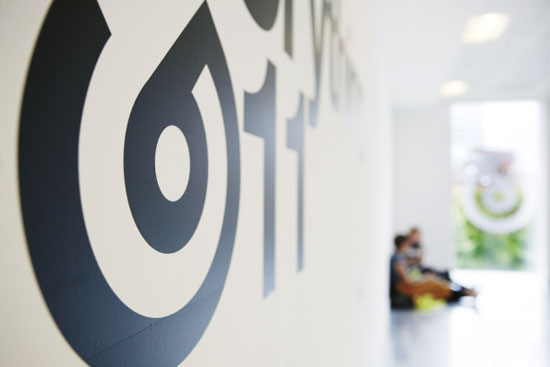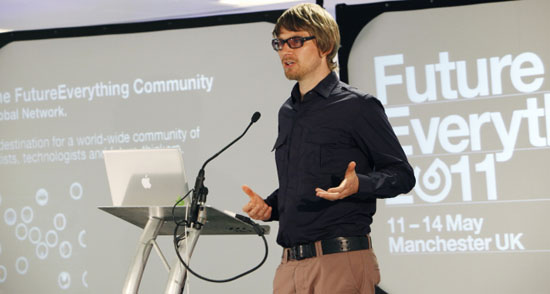|
|
FutureEverything 2011
- Written by Erik Strutz
- Wednesday, 25 May , 2011
In May I was lucky enough to be YOUrban’s envoy to the FutureEverything festival and conference in Manchester. After three busy days of workshops, talks, concerts and exhibitions, I returned to Oslo with new perspectives on themes such as open data, rapid prototyping and festivals as method for user-led innovation.
Interfacing With The City
One of the events I’ll remember most from my visit to Manchester and FutureEverything is a workshop called Interfacing With The City, led by Michael Smyth and Ingi Helgason from the Centre for Interaction Design, Edinburgh Napier University, UK. As the urban environment is increasingly filled with hidden and visible technologies, we need new ways to explore the growing information landscapes overlaying the city space. With this aim, the workshop focused on so-called bleed points, the points where the physical and virtual world is connected (such as CCTV-cameras, WiFi-routers, digital art and advertisements). After a short introduction, we went out into the city and searched for bleed points with our camera phones. The pictures were collected to a Flickr set, and formed a basis for discussions about how digital layers are visible or hidden and how their presence is mediated through the city. In the last part of the workshop we were asked to form smaller groups and quickly generate new design ideas. Our group came up with an installation idea, a ‘creative support button’ that could be placed anywhere in the city, giving instant creative input at a given location. Could this be an idea for another mobile app?
Interfacing With The City was about trying to bring the future into the present, and to try to get a glimpse of how we may interact with the city in the future. For me, the workshop had multiple outcomes; not only did we come up with new design ideas, it was also a way of looking at the urban environments with fresh eyes. It was about rapidly coming up with new ideas, a notion that festival Founder and Director Drew Hemment returned to in his talk Festival As Lab.
Festivals and events as methods for innovation
Hemment pointed out that festivals are experimental spaces. And FutureEverything is a great example of a festival that invites to a playful tinkering with ideas. The festival draws a line between activism, art and collaborative culture, which form a very interesting and effective environment for experimentation. This was also echoed in the talk Hacking Culture where Katy Beale, Rachel Coldicutt (from the Culture Hack Team) and Dan Williams (from Pervasive Media Studio) reflected on the event Cultural Hack Day, and what happens when developers, cultural organisations and creative producers meet. This was also interesting in relation to Theresa Grants (Corporate Director, Trafford Council) talk about the project DataGM, a project that is freeing Greater Manchester’s public data to the public. Grant pointed out how DataGM is not only about streamlining bureaucracy, but also a way to facilitate cultural changes, as the public is invited to use and explore the data provided.
Blurring boarder lines
It is not possible to understand the digital cultural changes of the increased mediation of human interaction solely by looking at future possibilities. As technology writer Bill Thompson touched upon in his talk And To Those Left Behind towards the end of the conference, we are still humans in flesh and blood, living in physical environments, interacting with physical objects. Still, the digital culture has changed radically the last years, and the boarder lines between our physical and online presence is getting blurred. This is why, as Thompson said, it is essential that we keep the critical discussion going about the form and meaning of these changes, and ask ourselves questions like: What do these cultural changes mean to our daily life? How are they affecting our daily habits of social interaction? How, if at all, are the changes in digital culture such as gamification of everyday activities improving the quality of our everyday life? With these questions in mind, I left Manchester hoping that I’ll return to FutureEverything in 2012.
Other highlights
Author James Bridle held an excellent talk called Where The Robots Work, about robots, and why we should be their friends. Have a look here for an overview.
Representatives of the DIYbio Manchester group presented another very interesting project called the Manchester Microbe Map. Have a look at their blog.
Interaction designer Kars Alfrink held a great talk called New Games For New Cities where he argued that city games could and should be more than mere entertainment media ready for consumption. Read more about his talk here.




